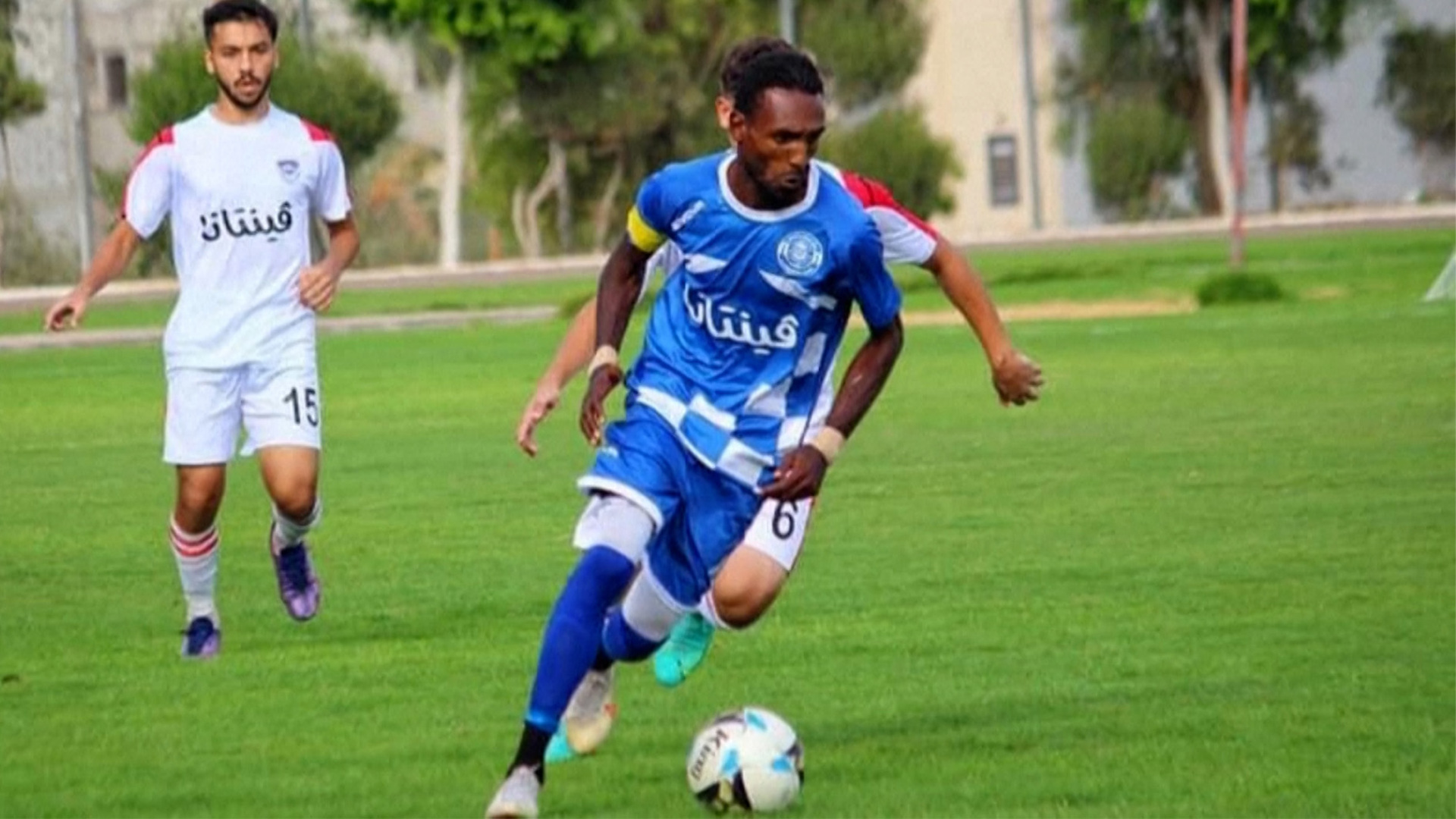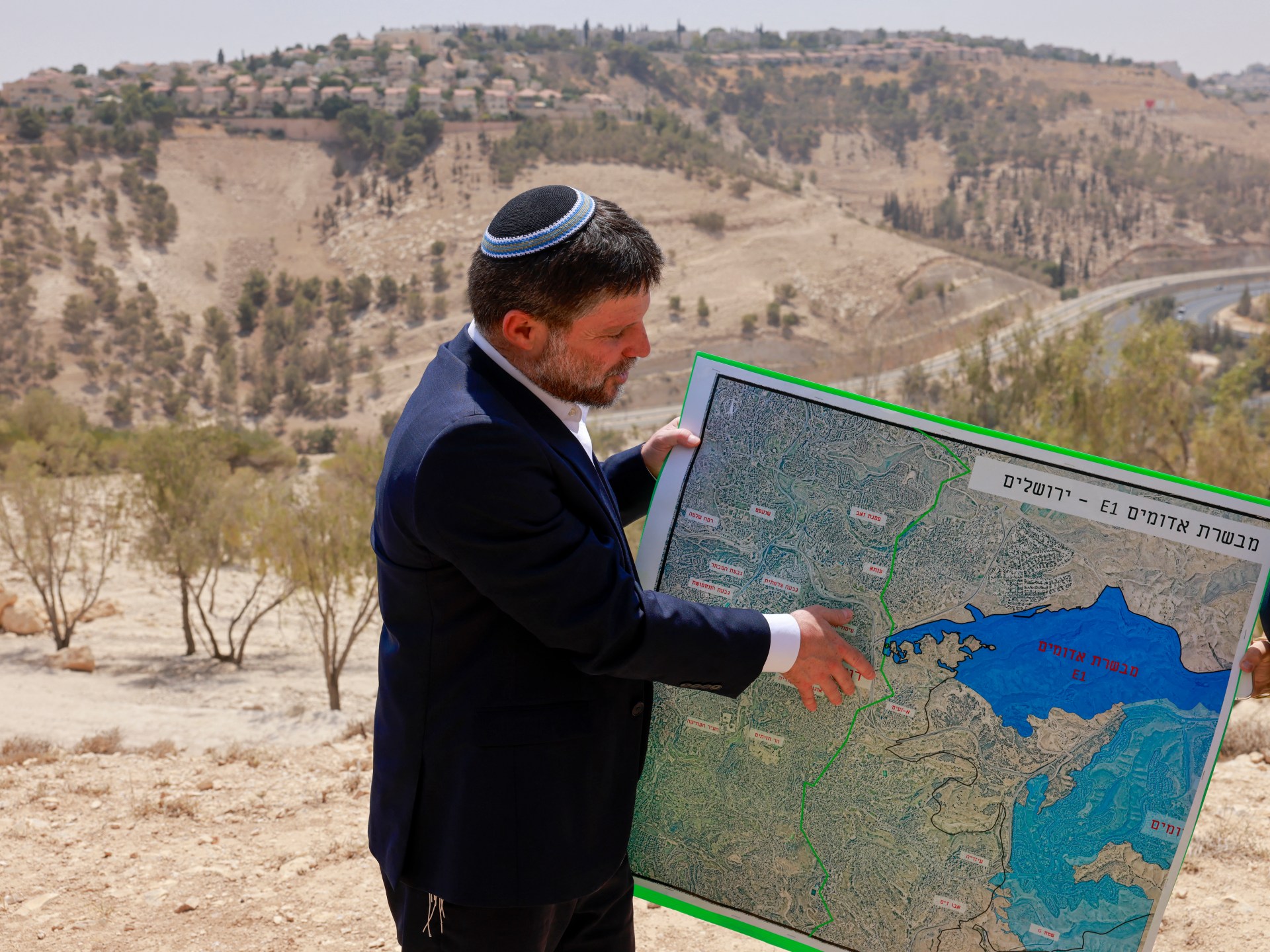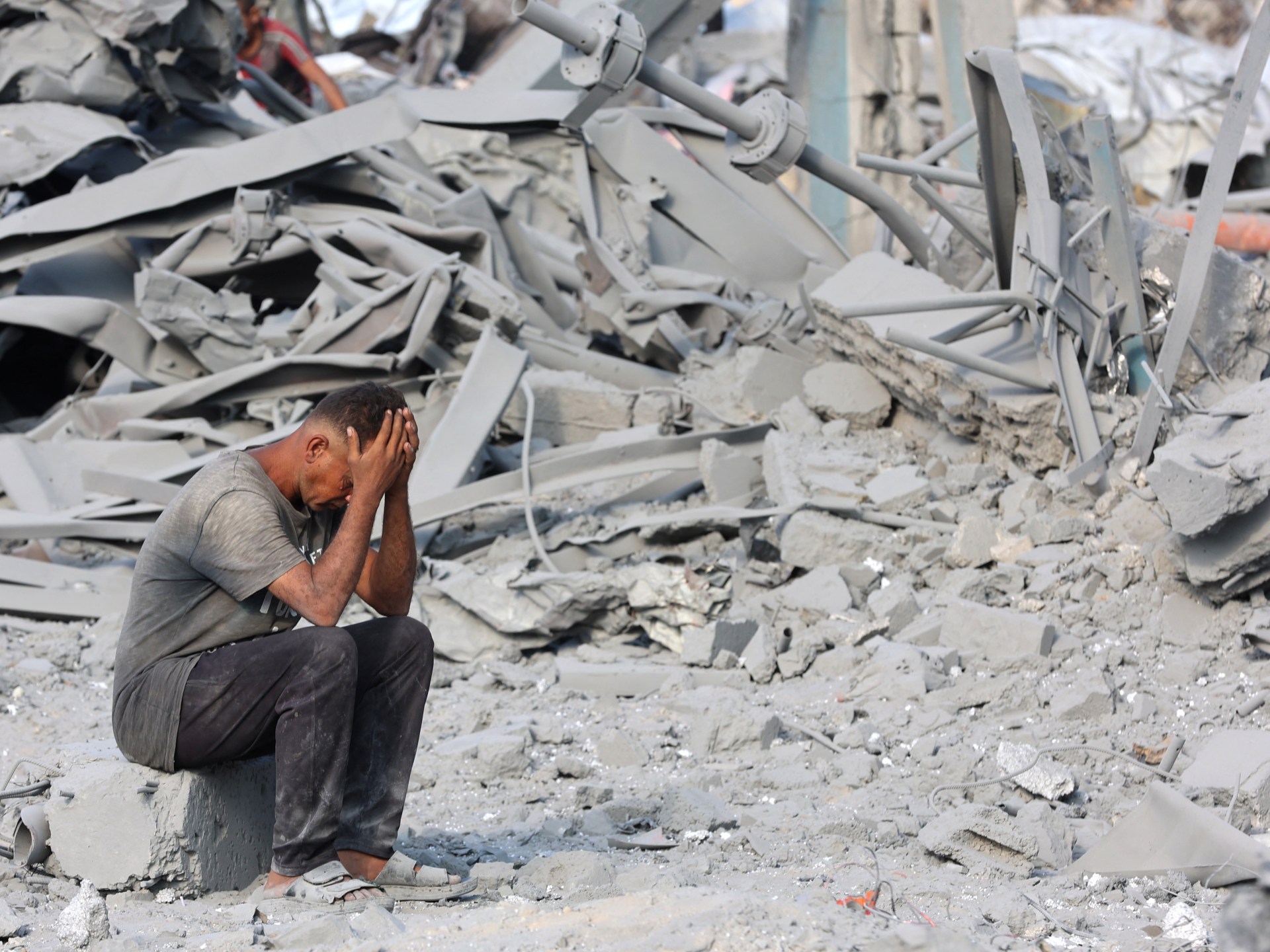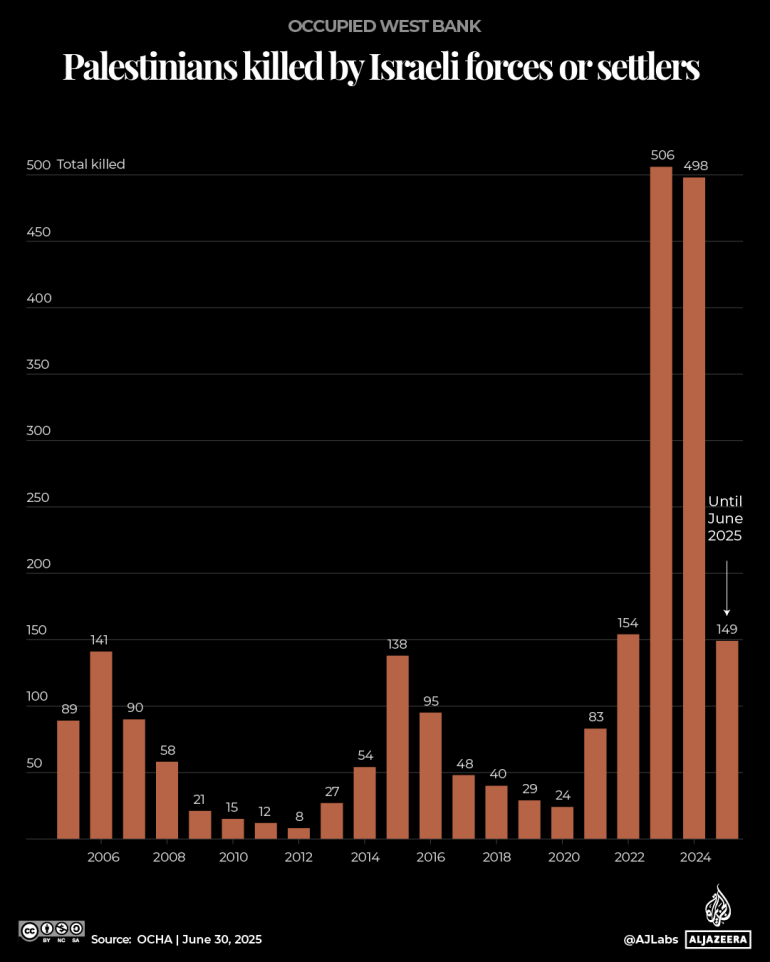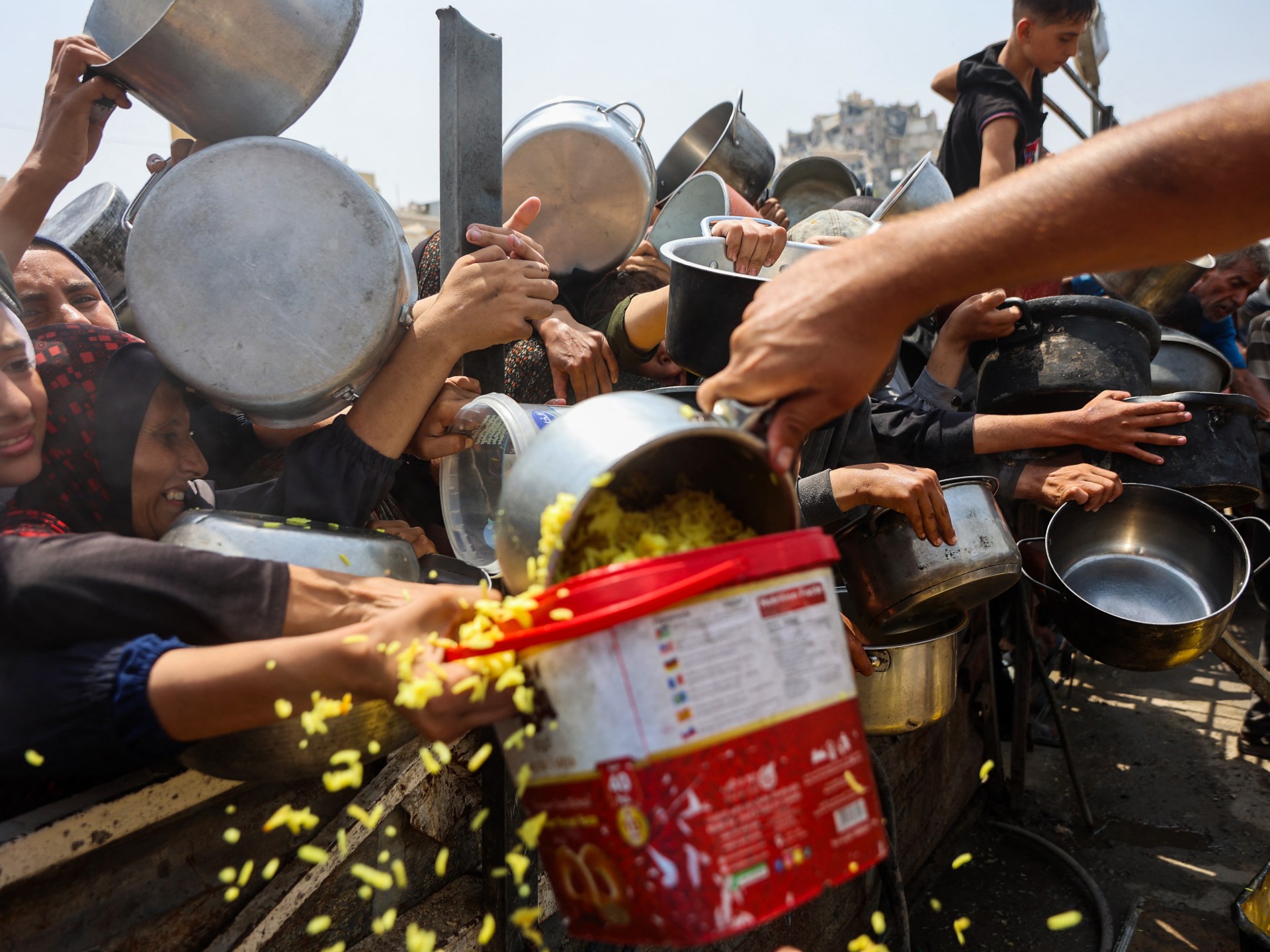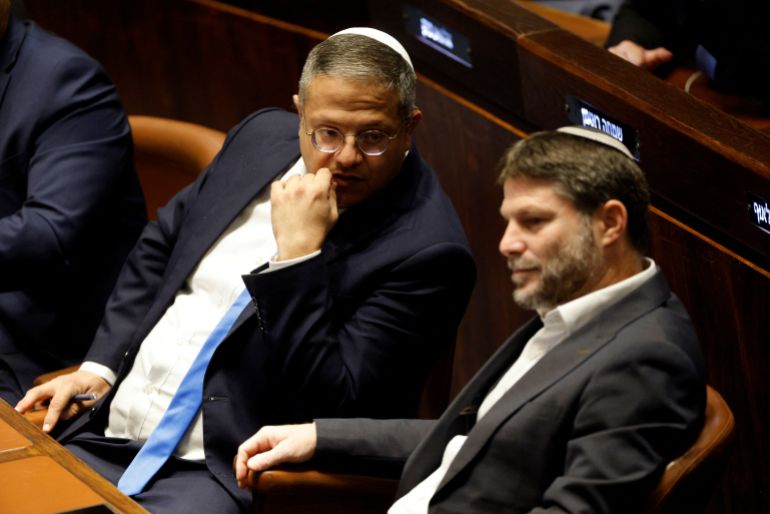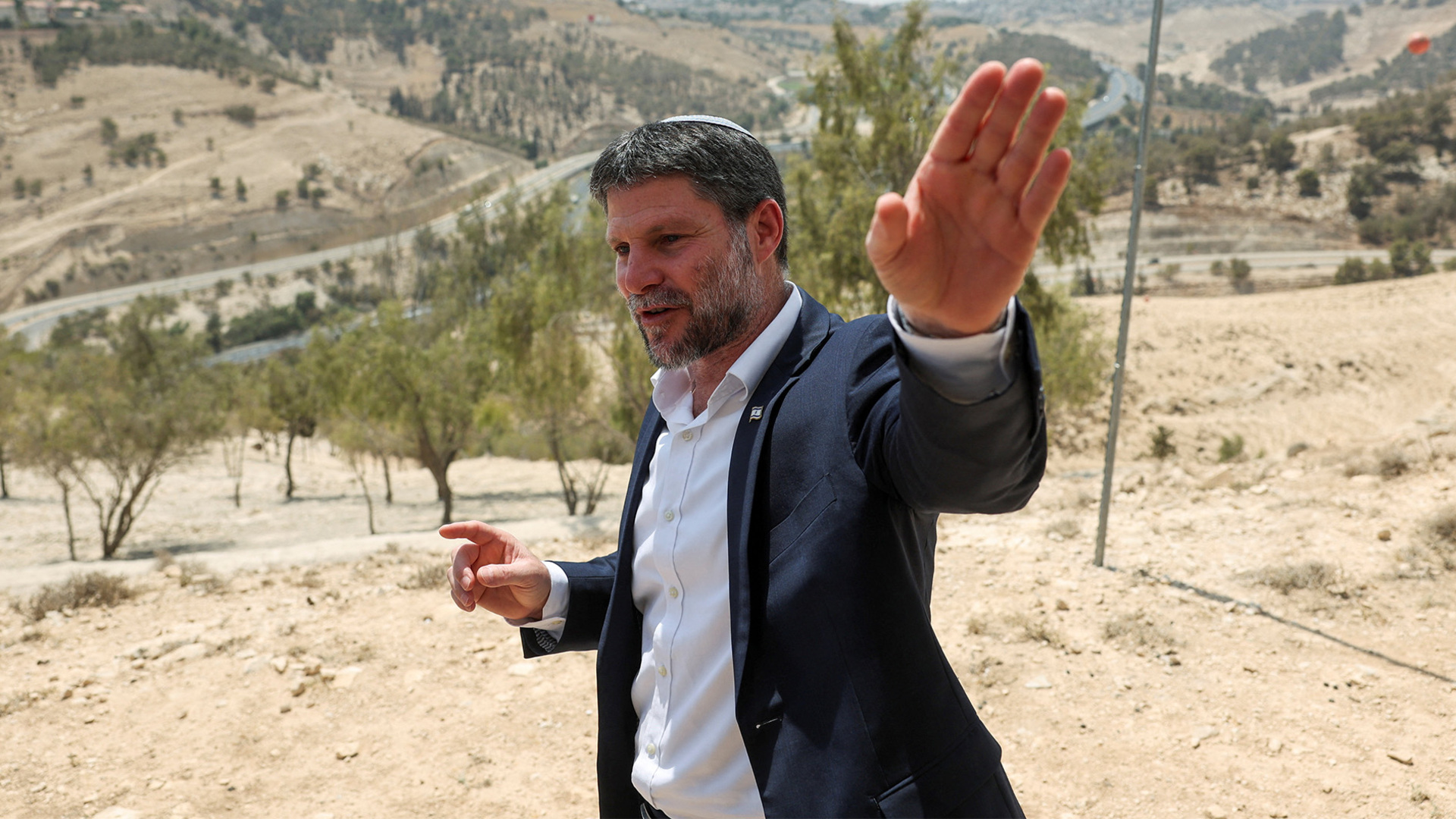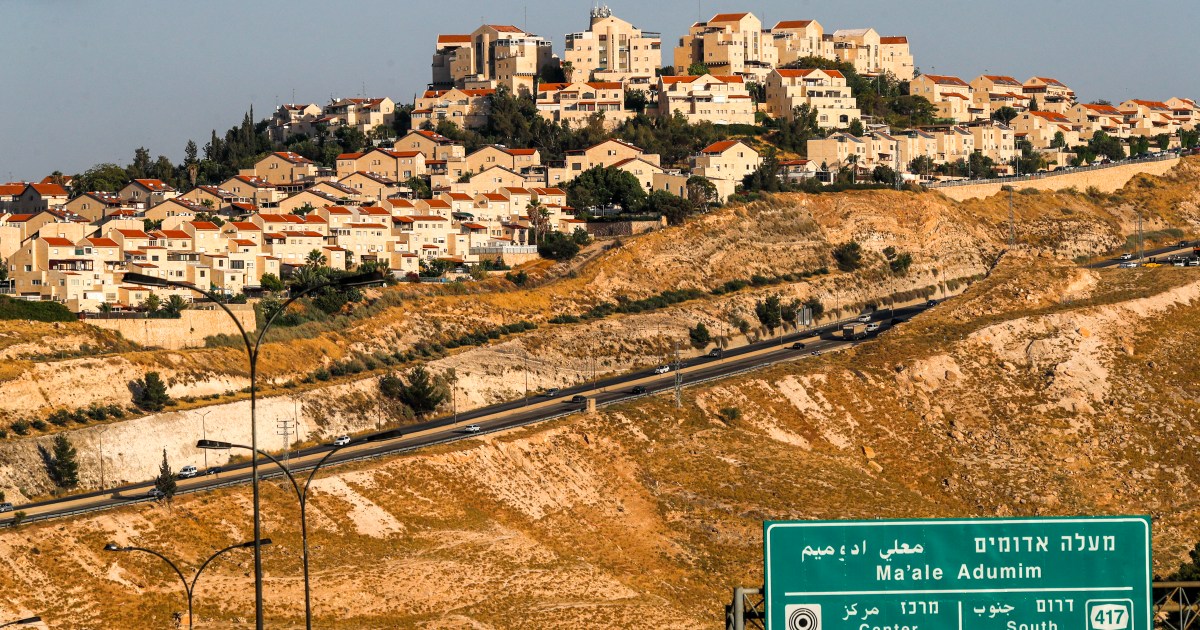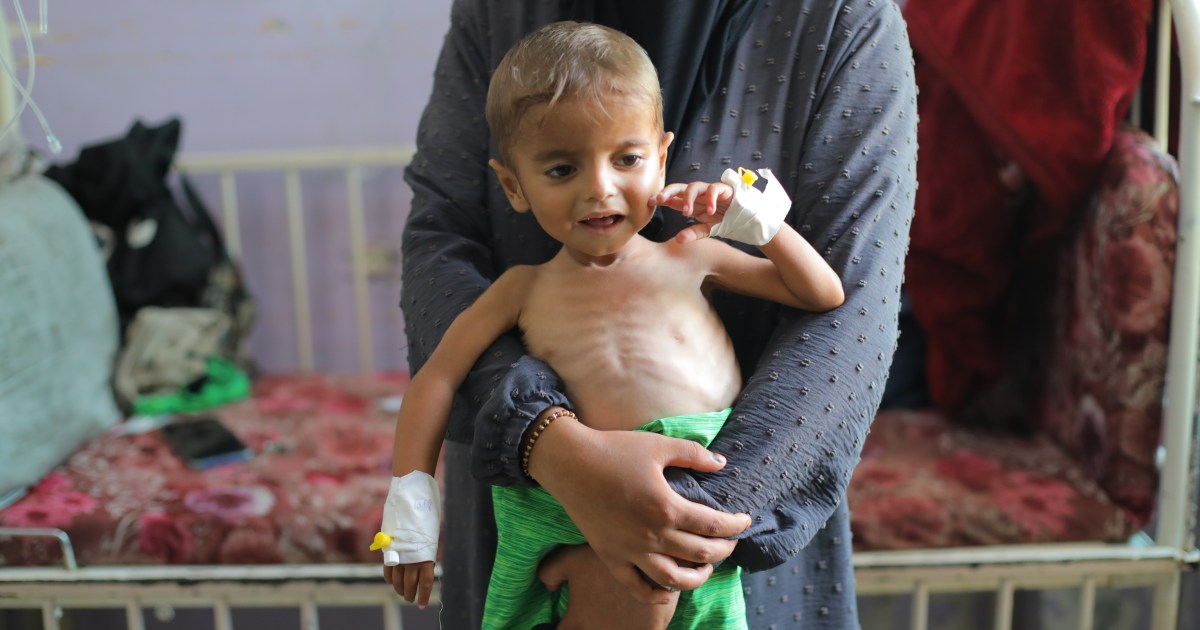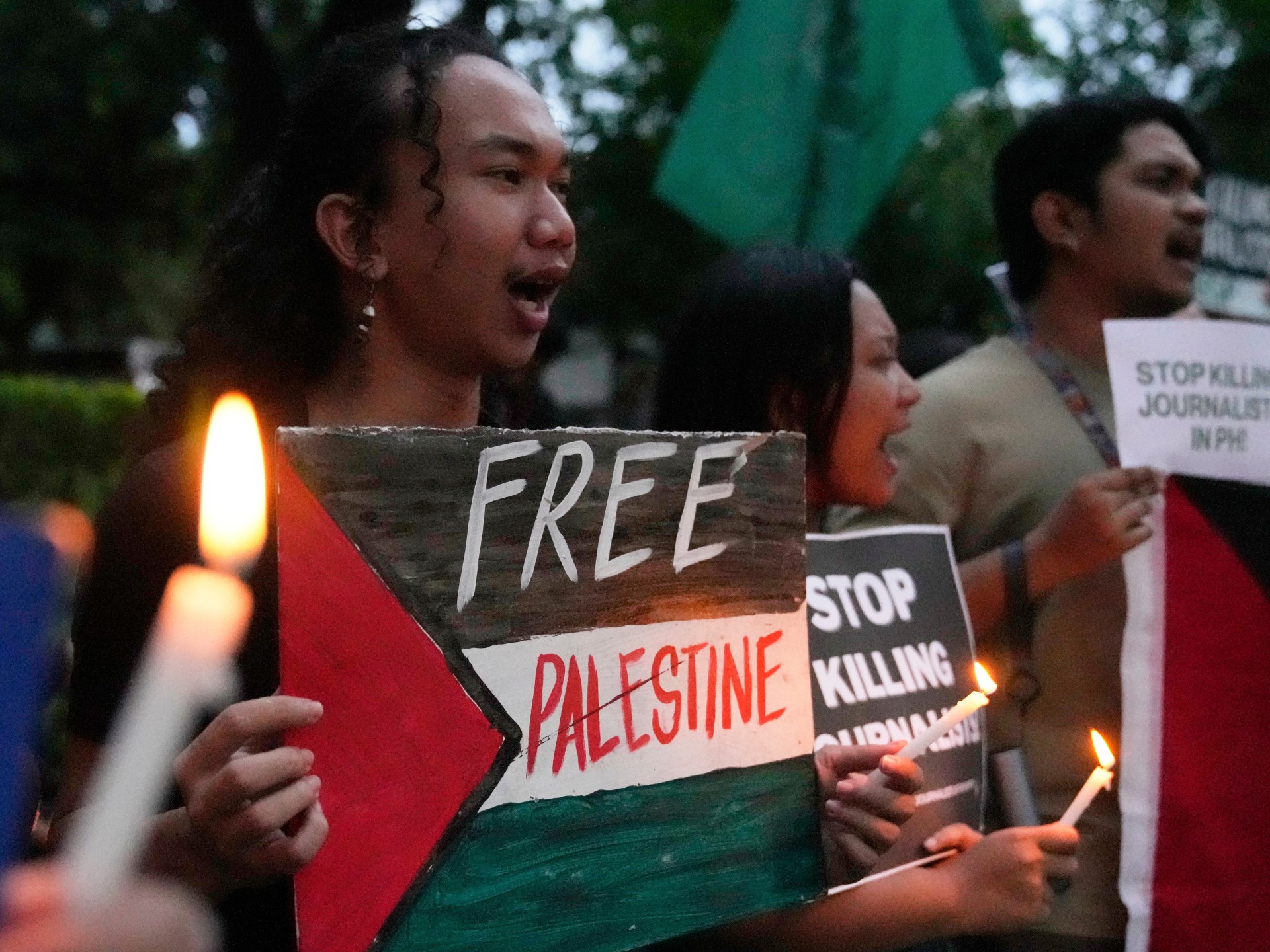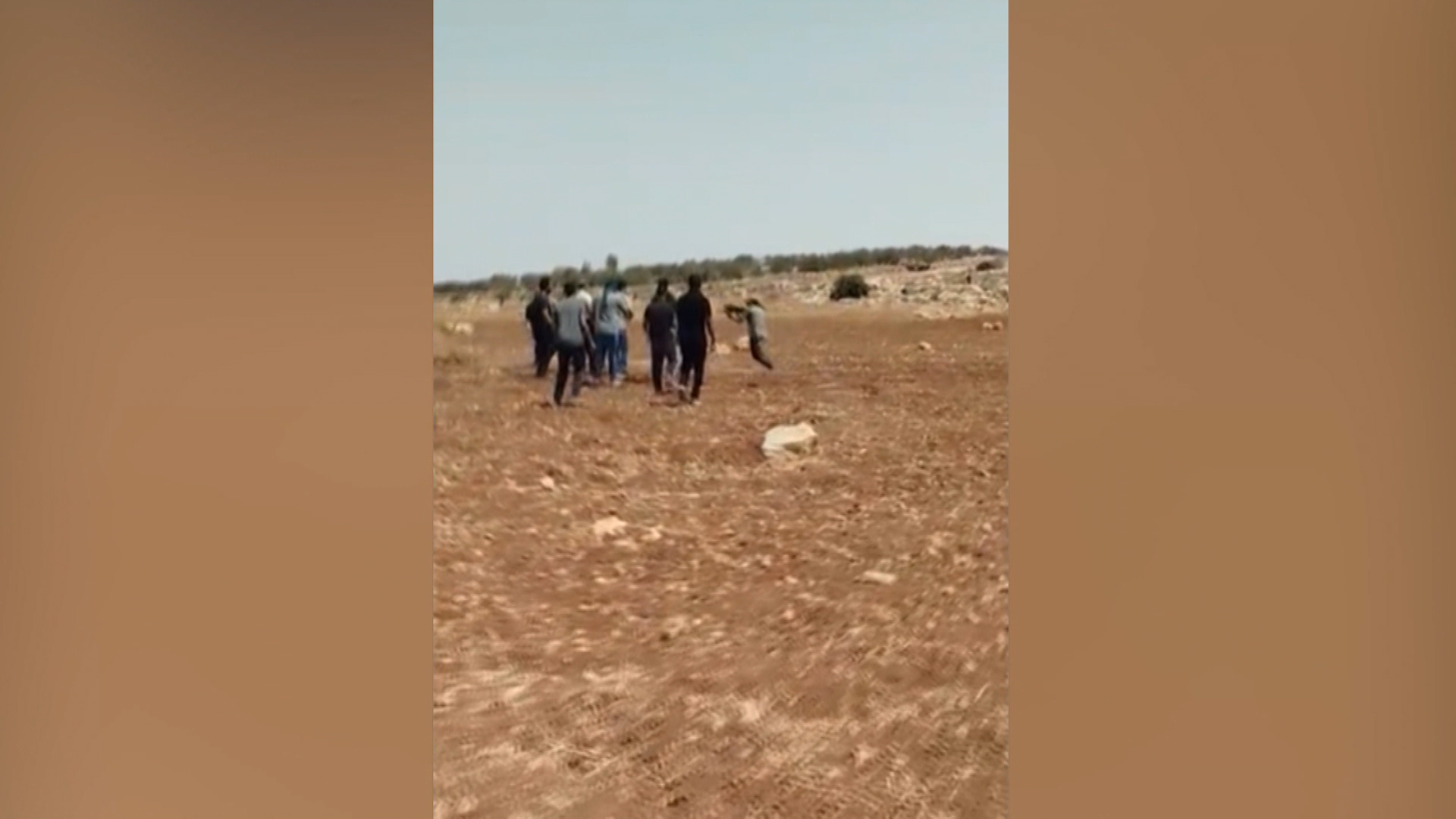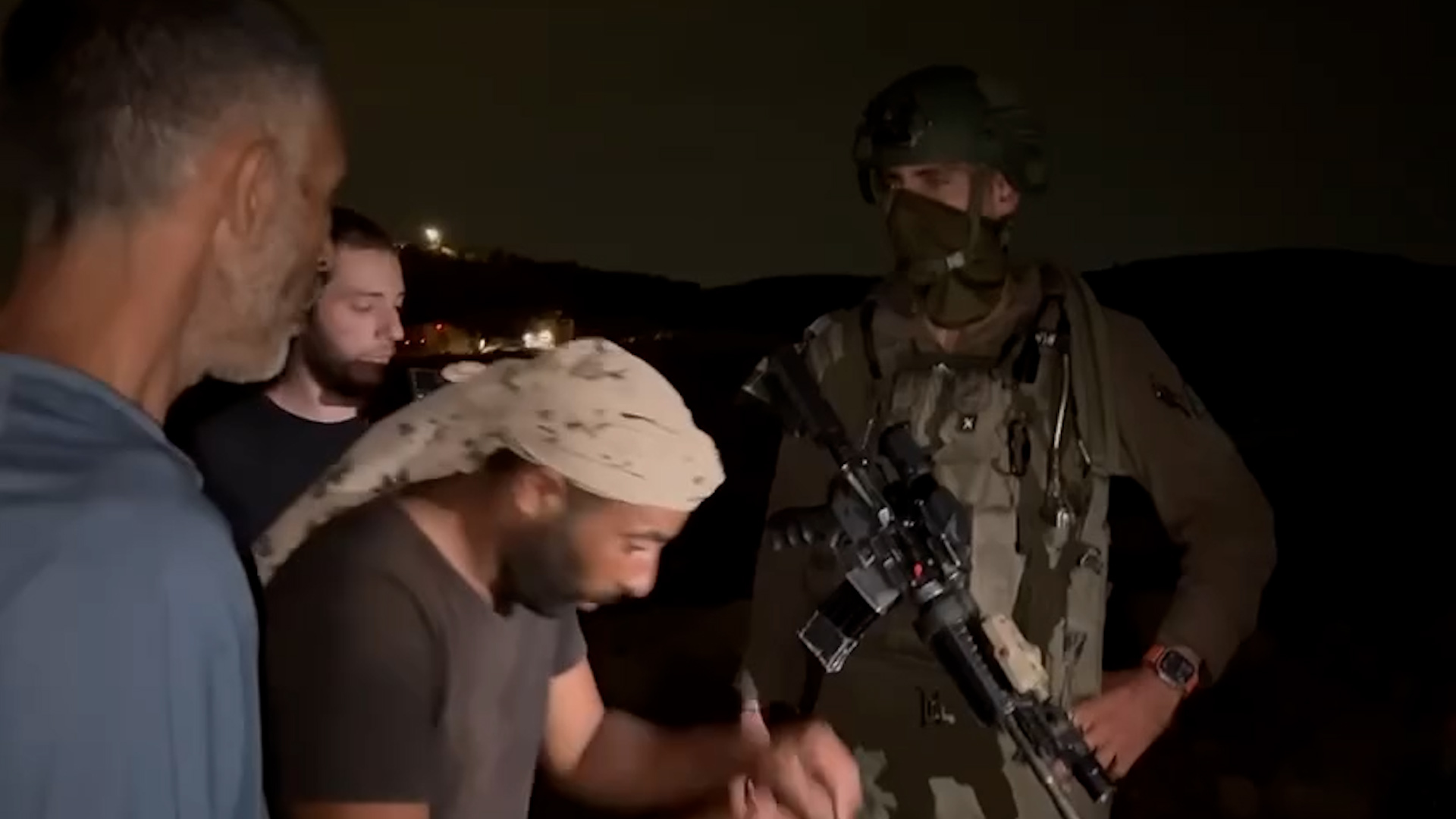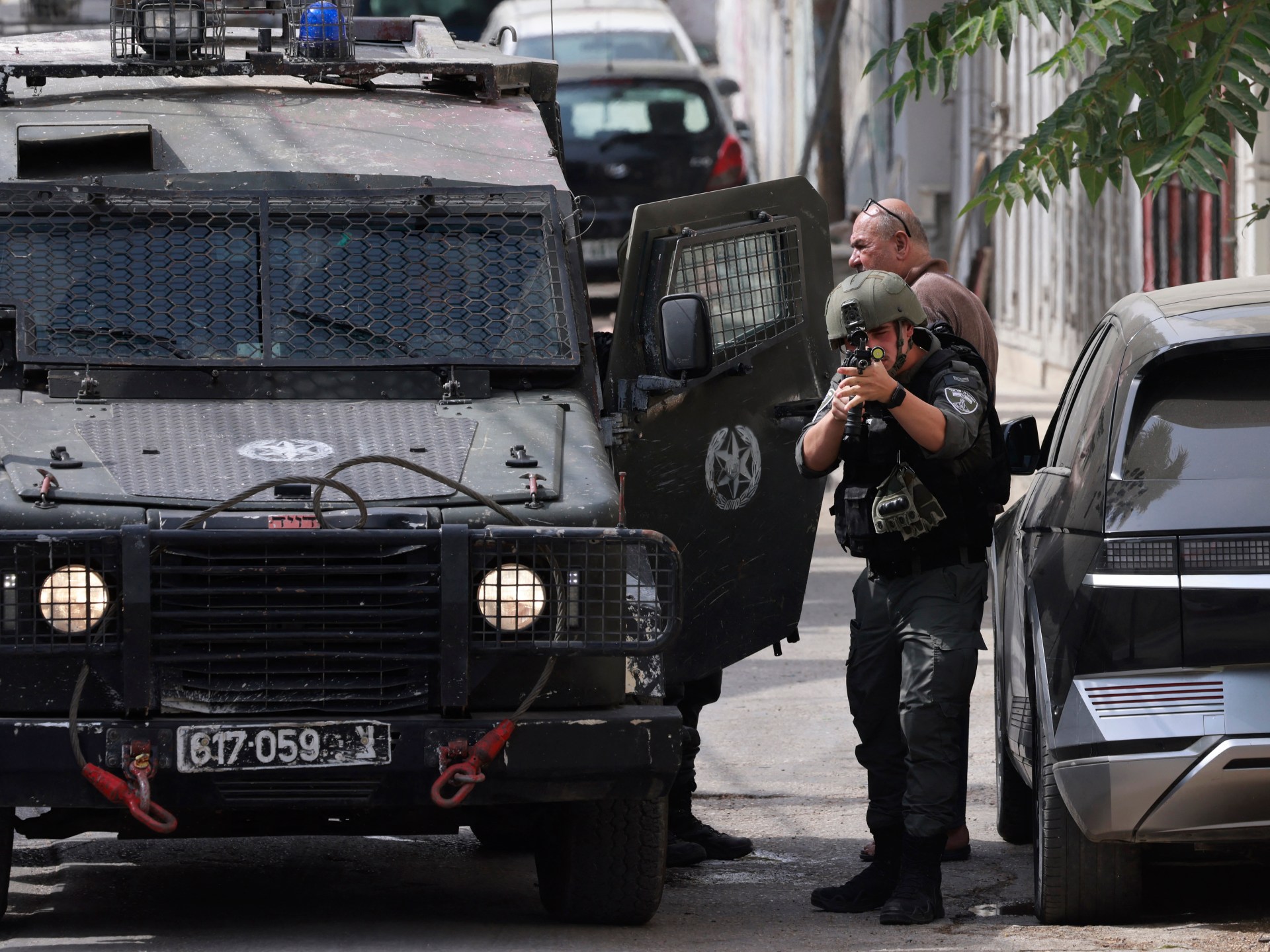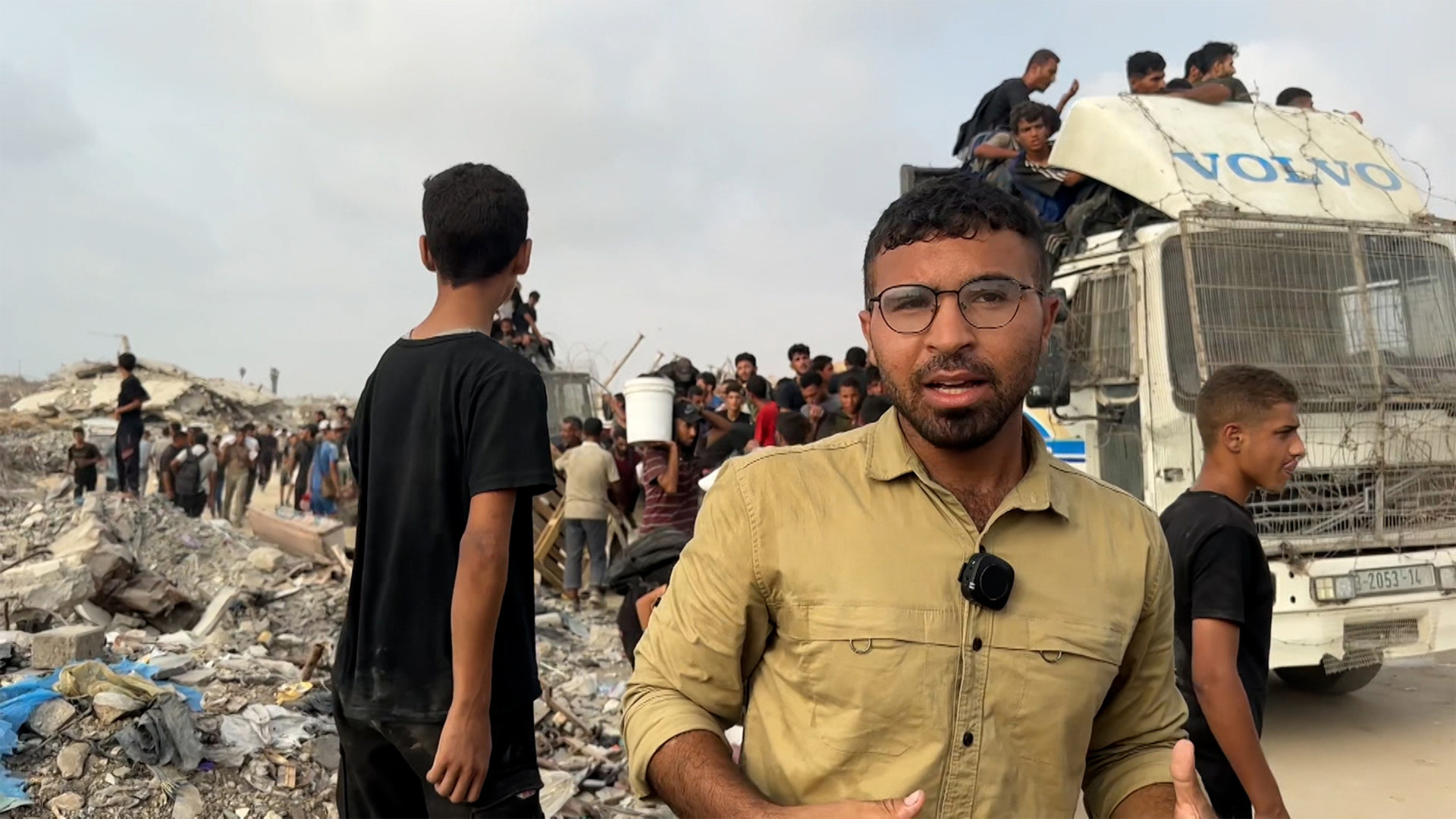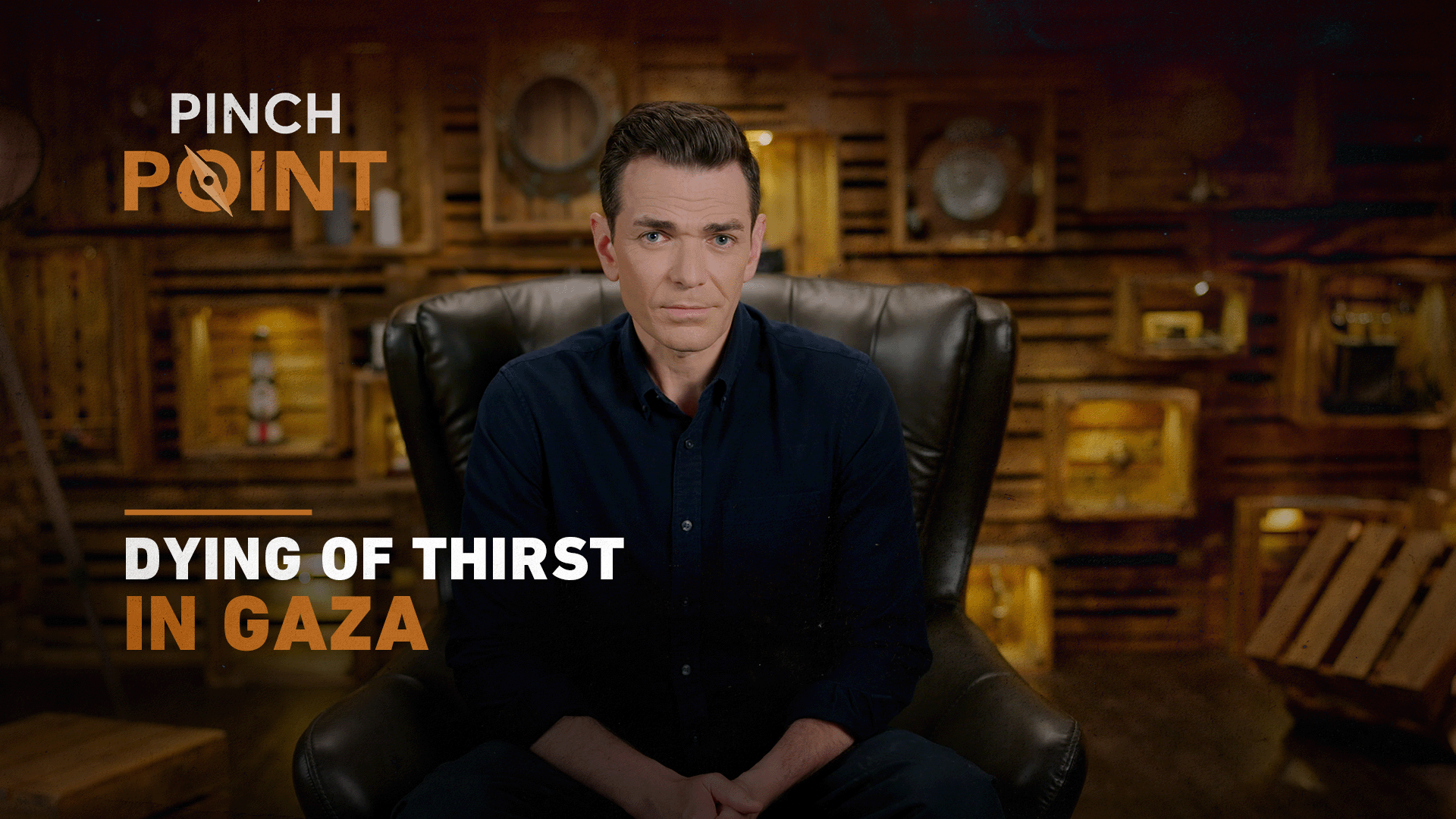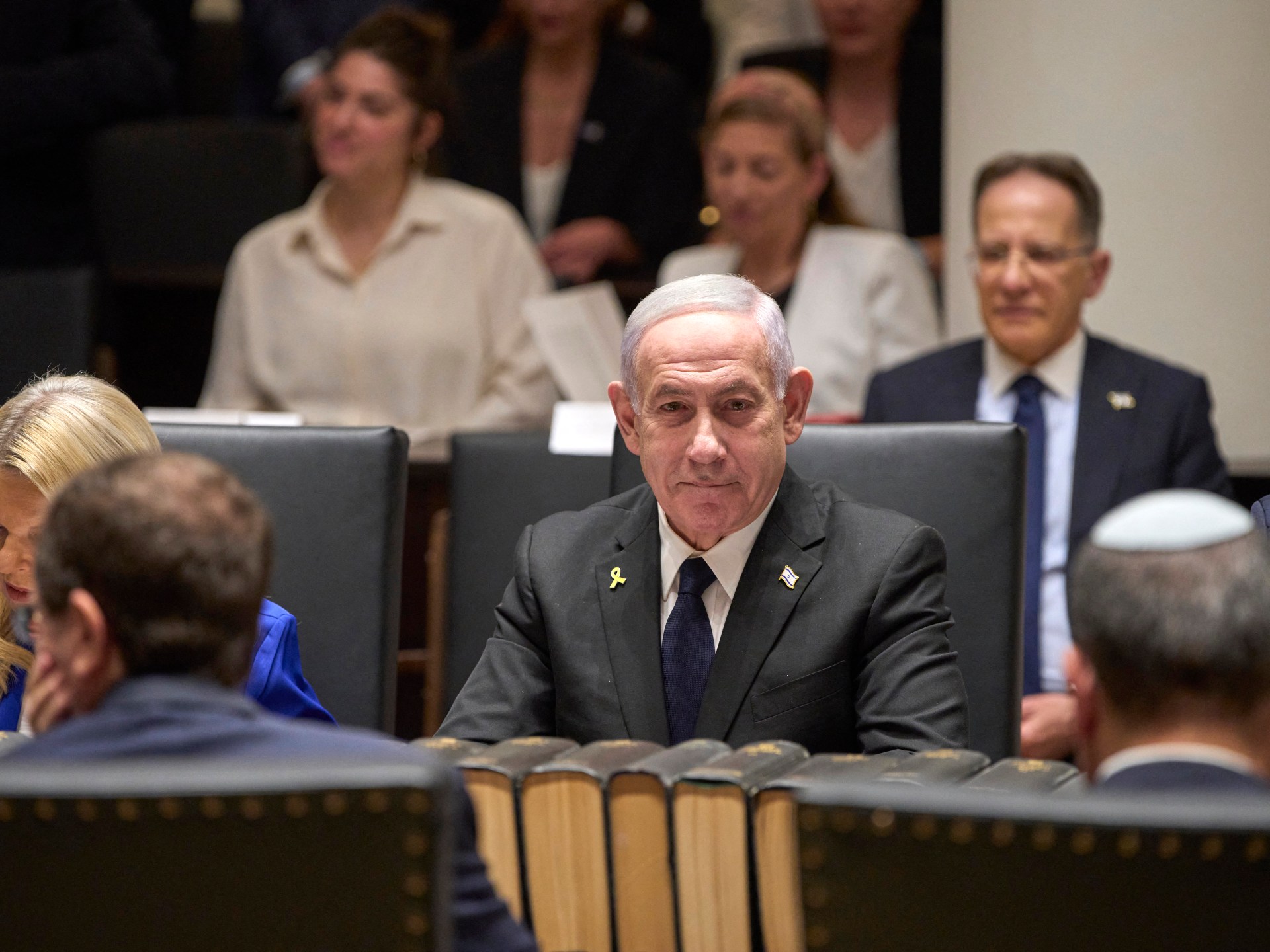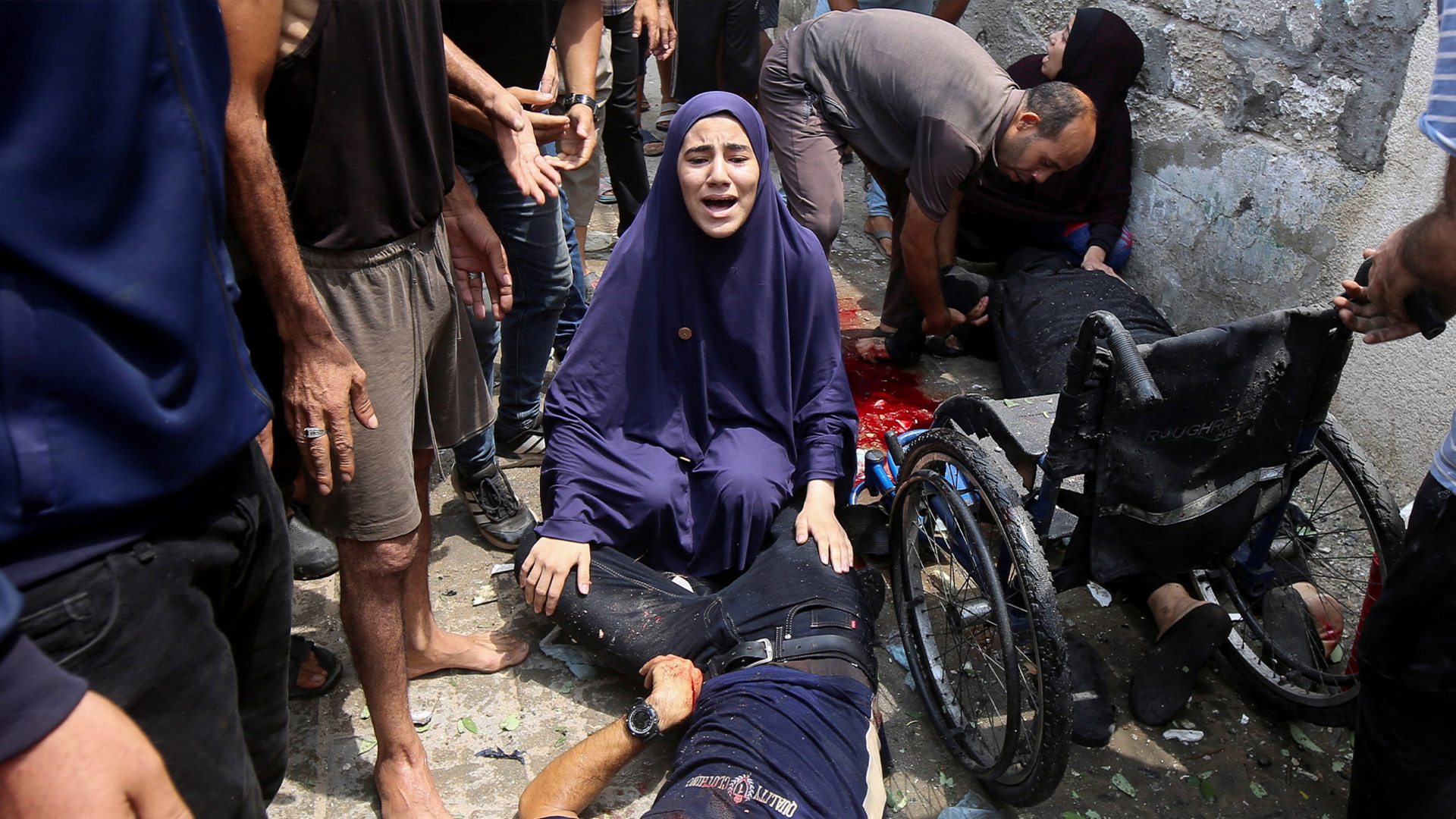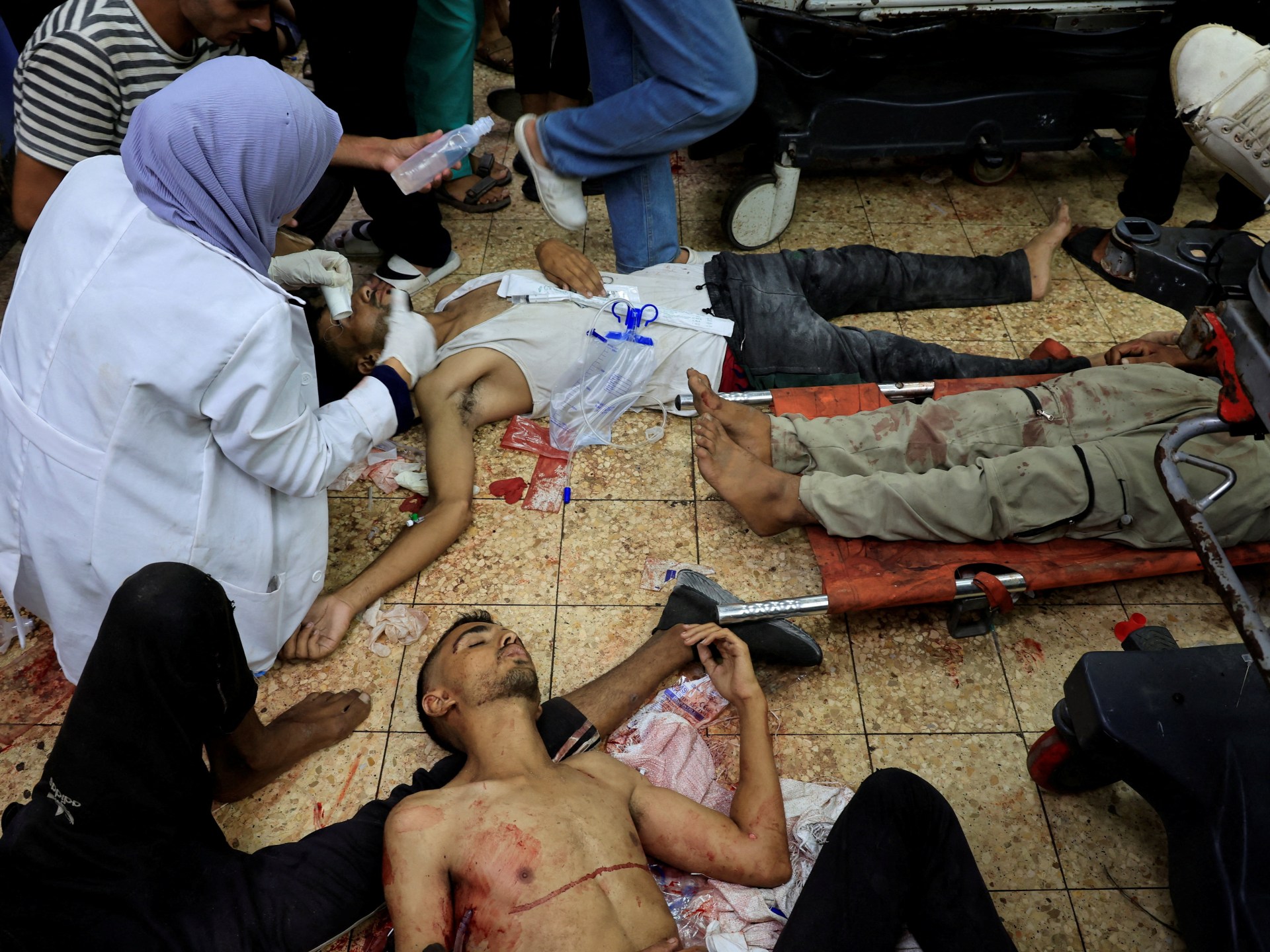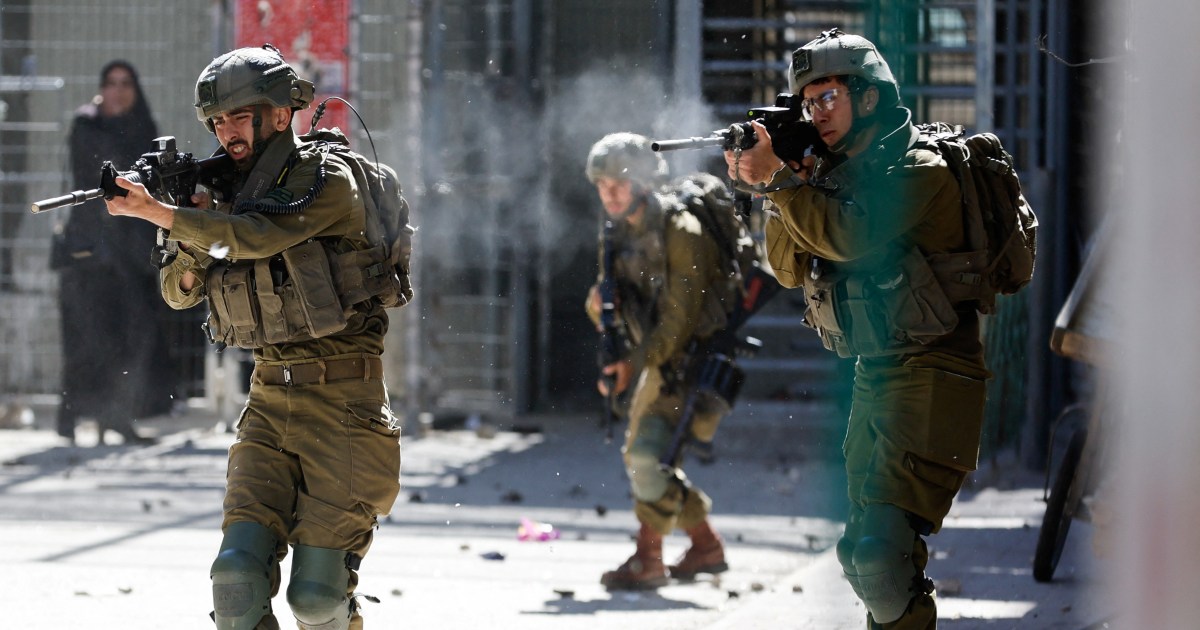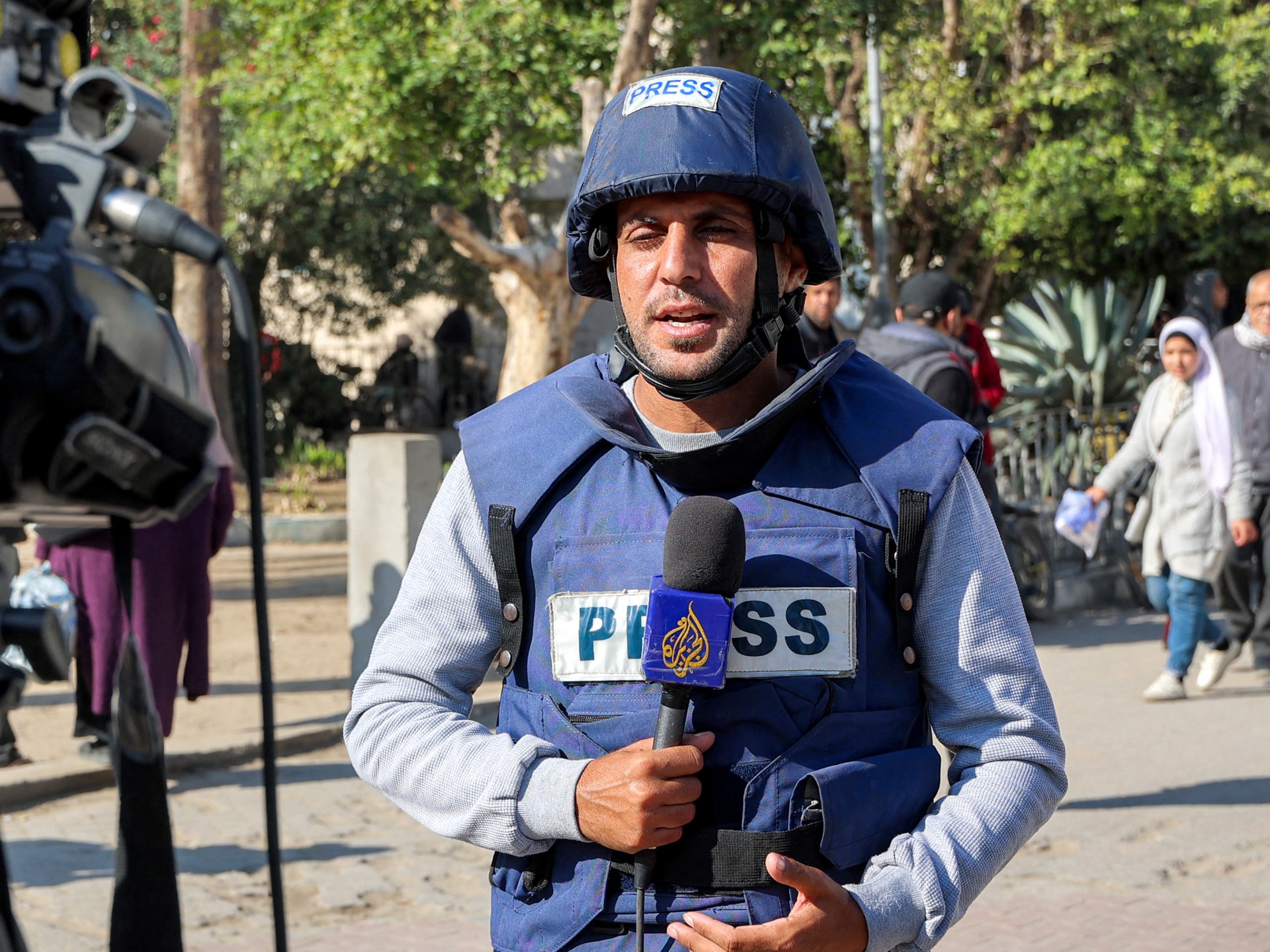At least 23 people, including 10 seeking aid, have been killed on Thursday in Israeli attacks across Gaza, according to Palestinian health authorities, as four more people died from malnutrition amid a growing starvation crisis in the besieged territory.
Hospital sources told Al Jazeera that 10 people seeking aid were among 12 people killed by Israeli forces near Rafah in southern Gaza.
One person was killed and several others were wounded in an Israeli attack near an aid distribution site, the sources said.
Eight people were killed in an Israeli air strike on a residential home in Gaza City in northern Gaza, medical sources said.
Two other people were killed in an Israeli attack on the city’s Tuffah neighbourhood, hospital sources told Al Jazeera.
The killings come as Israel escalates its attacks on Gaza City, the largest city in the enclave, after the country’s security cabinet approved plans for the military to seize the city, an operation that could forcibly displace hundreds of thousands of Palestinians to concentration zones in southern Gaza.
The plan has received international condemnation from the United Nations and even dissent from within Israel’s own military.
Al Jazeera correspondents reported on Thursday that large swaths of northern Gaza have been turned into “lifeless wastelands” amid the Israeli escalation.
Palestinians in Gaza City have spoken of their fears of further displacement, following an Israeli forced evacuation order to areas further south, ahead of the proposed occupation.
Walaa Sobh said she had already been displaced during the war from the northern city of Beit Lahiya to Gaza City, and was unable to move again.
“We’re afraid to move anywhere else, because we have nowhere to go, no income – and I am a widow,” she told Al Jazeera.
“If they want to force us out, then at least find us a place, give us tents, especially for the widows, the children, and the sick. You’re not only displacing one or two people; you’re displacing millions who have nowhere to stay.”
Another woman, Umm Sajed Hamdan, said she would refuse to follow the order.
“I am a mother of five and the wife of a detainee. I cannot escape with my children from one place to another,” Hamdan told Al Jazeera. “I would rather face death here in Gaza City than go to al-Mawasi.”
Al Jazeera’s senior political analyst Marwan Bishara said Israel’s plans to occupy Gaza City are a serious cause for concern.
“It’s a terrible escalation, really,” said Bishara.
“[Netanyahu] really intends to reoccupy Gaza … send the military in and just take it on again.”
Truce talks
As Israel continues to escalate attacks on Gaza City, Mossad spy chief David Barnea is visiting Qatar in an effort to revive talks over a Gaza ceasefire, two Israeli officials told the Reuters news agency on Thursday.
The visit follows a reported expression of positivity from Hamas officials to restart ceasefire negotiations during a meeting with Egypt’s intelligence chief in Cairo earlier this week.
Earlier on Thursday, Israeli Deputy Foreign Minister Sharren Haskel said that a non-Israeli, peaceful civilian administration for Gaza was among the Israeli government’s five key principles for ending the war.
The other principles include the release of captives still held in Gaza, the surrender of weapons by Hamas, the full demilitarisation of Gaza, and Israel retaining overriding security control, he said.
Aid still ‘a drop in the ocean’
Meanwhile, more than 100 aid groups on Thursday accused Israel of obstructing life-saving aid from entering Gaza, resulting in vast quantities of relief supplies remaining stranded in warehouses across Jordan and Egypt as more Palestinians starve.
“Despite claims by Israeli authorities that there is no limit on humanitarian aid entering Gaza, most major international NGOs [nongovernmental organisations] have been unable to deliver a single truck of life-saving supplies since 2 March,” the groups said.
There is aid sitting all around the boundary between Israel and Gaza that is not being allowed in, Natasha Davies, a nursing activity manager with Doctors Without Borders (MSF), told Al Jazeera.
“We’ve had a couple of trucks in [to Gaza], but really, it’s just a drop in the ocean … We run primarily a trauma surgical hospital, so every single patient has a wound of some sort that needs fixing with supplies that we are intermittently receiving,” Davies said by videolink from Gaza’s southern city of Khan Younis.
“It’s just a humanitarian catastrophe. There are these GHF sites, which are slaughter masquerading as aid, which create mass casualty incidents, which create more injuries for us to treat with limited resources,” she said.
The total number of aid seekers killed since May 27, when Israel introduced a new aid distribution mechanism through the US-based GHF, has reached 1,881, with more than 13,863 injured, according to Gaza’s Health Ministry.
The total count of hunger-related deaths is now 239, including 106 children, the ministry records.
Israel’s war on Gaza has killed at least 61,776 people and wounded 154,906. An estimated 1,139 people were killed in Israel during the October 7, 2023, attacks, and more than 200 were taken captive.
